FAQ
General Questions
Please visit the appropriate section of our website or the self-help tab for more information. You can also visit flcourts.org for approved forms.
Please use this form to request permission to appear and testify by telephone for a hearing or status conference.
You can file the completed forms at the Clerk’s Office in the County in which the case will be heard or online through the E-Filing Portal.
Please call your local Clerk of Court. They can tell you the current fees that must be paid when you file paperwork for each type of case.
Our website does not list every court form. Other organizations, such as The Florida Bar, also create forms for different types of cases. Also, check with your local law library or www.flcourts.org.
Only one form – 12.910(a) Summons: Personal Service on an Individual – is provided in a language other than English.
You cannot talk with the judge with only one party present. Judges are not allowed to speak to you unless the other party is present or has been properly notified. If you have something you need to tell the judge, you must ask for a hearing and give notice to the other party or file a written statement in the court file and send a copy of the written statement to the other party.
If you are going to be late to your court hearing, contact your attorney. If you do not have an attorney, contact the presiding judge’s office directly. For a list of phone numbers, please visit our directory.
Contact the Clerk of Court in your county for more information about marriage licenses, passports or visit their website.
For any questions regarding driver license, tag, or title, please contact your local Tax Collector’s Office.
Please contact the Clerk of Court in the County in which your ticket was issued for more information and payment options. You may visit the flclerks.com to find your local clerk’s information.
Visit our Court Reporting Page for more information
Family Court
The Florida State Courts System’s Self-Help Center provides family law forms that have been approved by the Florida Supreme Court. We can guide you to our forms regarding custody/ time-sharing. However, we cannot provide legal advice or make legal determinations including telling you which forms to choose or how to proceed with your case.
Each form has instructions that explain the circumstances in which the forms may be used, information regarding filing, service, other forms that may be necessary, etc.
As a self-represented litigant, it is your responsibility to determine which forms work best for your situation.
Our custody/time-sharing forms include:
- 12.902(d) Uniform Child Custody Jurisdiction and Enforcement Affidavit
- 12.902(e) Child Support Guidelines Worksheet
- 12.905 (a) Supplemental Petition to Modify Parenting Plan/Time-Sharing Schedule and Other Relief
- 12.905(b) Supplemental Petition for Modification of Child Support
- 12.905(d) Supplemental Petition for Temporary Modification of Parenting Issues for Child(ren) of Parent Activated, Deployed, or Temporarily Assigned to Military Service
Read the instructions to decide whether any of these forms would be helpful to you. If neither form is relevant to your situation, contact one of the local self-help centers or your county courthouse.
While Florida Courts Help cannot provide specific legal advice, we can direct you to our website where you can view our divorce (also known as dissolution of marriage) forms.
Some of our divorce (dissolution of marriage) forms include: 12.900-12.909
- Form 12.901(a) Petition for Simplified Dissolution of Marriage
- Form 12.901(b) (1) Petition for Dissolution of Marriage with Dependent or Minor Child (ren)
- Form 12.901(b) (2) Petition for Dissolution of Marriage with Property but No Dependent or Minor Child (ren)
- Form 12.901(b) (3) Petition for Dissolution of Marriage with No Dependent or Minor Child (ren) or Property
Find Divorce / Dissolution of Marriage forms / Review the steps in What Happens in Court
Maybe. You can ask the court to change how much you pay if you have had a substantial change in circumstances since the original order was issued. Please review form 12.905(c) to see if this form will work for you in your particular situation. Please read the instructions for the form carefully.
Generally this is done as part of an adoption. If you aren’t filing an adoption you’ll need to speak to a lawyer. Usually only the state can terminate parental rights, and it’s done as a part of a case involving charges of abuse and/or neglect.
If you want child support payments lowered or discontinued, a written Petition for Modification must be filed with the court, specifically stating what is wanted and why. The Petition, accompanied by a current financial affidavit, must be personally served on the former spouse, and a hearing must be scheduled before a judge, General Magistrate, or Hearing Officer.
When possible, it is recommended that you be represented by an attorney in all court matters. If you are representing yourself, the judge/general magistrate/hearing officer will not speak with you about lack of payment until a written motion has been filed, and you have properly scheduled a hearing with notice to all parties. Please click here for Family Court forms (links to flcourts.org forms). You should fill the forms out the best you can, telling the judge what it is you want and why. You must then file your motion, send a copy to the other party and call to schedule a hearing. Depending upon where your case is located, you may also be required to send the other party a Notice of Hearing. You might also contact the Florida Department of Revenue at 800-622-5437 to request its assistance in obtaining your child support.
If you have Department of Revenue (DOR) Child Support Enforcement, DOR is supposed to send the income deduction order to the new employer. If you are not represented by DOR, you can obtain a CERTIFIED copy of the income deduction order from the court file and send it to the new employer yourself. Florida statutes require that it be sent by CERTIFIED MAIL RETURN RECEIPT. If payments have been missed, you may ask the court to add the missing amounts to his/her current payments.
If you feel the child is in some kind of immediate danger in the other parent’s home, you should contact the Florida Department of Children and Families at 1-800-96-ABUSE (1-800-962-2873) or your local law enforcement agency. If the child is not in Florida, you should contact the authorities responsible for abuse allegations in the jurisdiction where the child is located. If the child is not in any danger, you should contact your attorney.
NOTE: This kind of question can be complicated, especially if the child is not in Florida. As in all court matters, it is recommended that an attorney be consulted when possible.
Visitation: If you have another jurisdiction’s order or judgment that you want enforced locally, you must register the order with the local clerk’s office and then ask the local Court to enforce it. The clerk will require an original certified copy (with original notary seals) of the out-of-state order. For information about this procedure, you should contact your Clerk of Court’s Office.
NOTE: if the child doesn’t reside in Florida, you may need to pursue this matter in the state where the child resides.
You should first contact the Department of Revenue for assistance in having an out-of-jurisdiction child support order enforced. If that is unsuccessful, follow the directions shown above for enforcement of non-local visitation orders.
NOTE: There are many legal issues involved in enforcing or modifying a child support order. If one parent doesn’t reside in Florida, it is recommended that you seek advice from an attorney.
Jury Duty
Prospective jurors are randomly selected from the Florida Department of Highway Safety and Motor Vehicles records. These records include all Third Judicial Circuit County residents eighteen years of age and older who are licensed drivers, or those who have a Florida Identification Card. Prospective jurors will only be summonsed in the county in which they reside.
Please read your summons carefully. The date, time and place to report are printed on it, along with your juror number. Follow the instructions to determine if you need to report on the specified date & time. If your name or address is incorrect on the summons, cross it out and write in the correct information. Give the summons to the clerk when you arrive for jury duty.
Jurors should report for jury service in a manner that is respectful of the Court. Business casual attire is considered appropriate. No shorts, tank tops or flip flops. Courtrooms are air-conditioned, so you may wish to bring a sweater or light jacket for comfort.
Please note that although your report date is scheduled for your service can be for the report date only, from the report date through sometime that week, or, in rare circumstances, from the report date through several weeks. Plan on the entire day for jury service, for there is not a specific time of day that the court concludes. Please make arrangements with family, friends, and/or your employer with regard to this potential time frame.
Section 40.23 of the Florida Statutes states that “failure to attend as a juror upon being duly summoned may result in a fine not to exceed $100.” In addition to the fine, you may also face contempt proceedings which could result in the imposition of community service or other sanctions, including jail time.
Pursuant to Section 40.24, Florida Statutes, jurors who are regularly employed and who continue to receive regular wages while serving as a juror are not entitled to receive compensation for the first three days of juror service. Jurors who are not regularly employed or who do not continue to receive regular wages while serving as a juror are entitled to receive $15 per day for the first 3 days of juror service. All jurors who serve more than 3 days will be paid $30 per day for the fourth day of service and each day thereafter, regardless of the employment status.
If you are a person with a disability who needs any accommodation in order to participate in this proceeding, you are entitled, at no cost to you, to the provision of certain assistance. Please contact the ADA Coordinator at (386) 758-2163 or ADAmail@jud3.flcourts.org at least 7 days before your scheduled court appearance, or immediately upon receiving this notification if the time before the scheduled appearance is less than 7 days. If you are hearing or voice impaired, please call 711.
Refer to the information included in your jury summons or contact the specified judge’s office directly.

